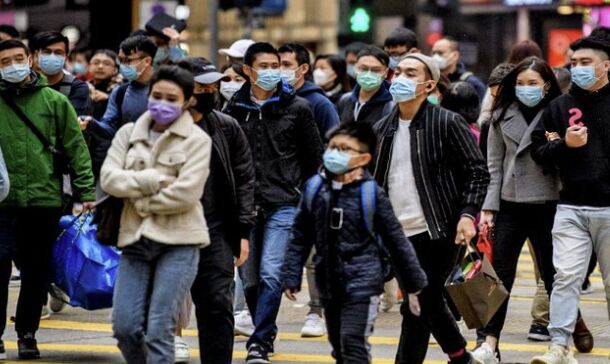"Singapore Braces for Surge in Covid-19 Cases as New Variants Drive Infections: Health Minister Urges Vigilance and Up-to-Date Vaccinations
Singapore faces another wave of Covid-19 infections with a significant increase in daily cases. Despite this, the government will not impose social restrictions but urges vigilance and vaccination to protect against severe illness.
Singapore is currently facing another wave of Covid-19 infections, with Health Minister Ong Ye Kung warning that more people are expected to fall sick and be hospitalized in the coming weeks. The estimated daily cases have risen from about 1,000 three weeks ago to 2,000 in the past two weeks, indicating a significant increase. However, despite the surge in cases, the government will treat the situation as an endemic disease and will not impose any social restrictions, as was done during the previous wave from March to April. The recent cases are largely driven by two variants - the EG.5 and its sub-lineage HK.3 - both of which are descendants of the XBB Omicron variant.
📌Singapore seeing new Covid wave, warns health minister https://t.co/mJNQgcc0hh
— Outbreak Updates (@outbreakupdates) October 6, 2023
These variants now account for over 75 percent of Singapore's daily cases. Although there is no evidence to suggest that these new variants are more likely to lead to severe illnesses compared to previous variants, the health minister cautioned against lowering the guard against Covid-19. While the current vaccines continue to work well in protecting against severe illnesses caused by the new variants, Ong emphasized the importance of not becoming complacent. He stated that more people can be expected to fall sick in the coming weeks, leading to an increase in hospitalizations and waiting times.
To support his statement, Ong shared findings from a Ministry of Health study conducted during the peak of Singapore's last infection wave in April. According to the study, individuals who have a minimum of three mRNA shots and a natural infection within the last 12 months are considered to be the best protected. Their incidence rate of severe illness is about 10 per 100,000 people. On the other hand, those who have no minimum protection and no recorded infection are five times more likely to become severely sick when infected with Covid-19, with an incidence rate of more than 50 in 100,000 people.
Furthermore, the study revealed that individuals who are well-protected with three mRNA shots and a previous infection, but acquired these more than 12 months ago, have an incidence rate of severe illness similar to those with no vaccination or protection. This indicates that protection against severe illness may wane over time, particularly after the 12-month mark. Given these findings, Ong emphasized the importance of seniors and medically vulnerable individuals keeping their vaccinations up to date. He advised them to take necessary precautions, such as wearing masks in crowded areas.
Ong reassured the public that the Covid-19 virus has not become milder, but rather individuals have become stronger and more resilient due to vaccinations and safe recovery from infections. In Singapore, the Ministry of Health continues to offer free Covid-19 vaccinations at various vaccination centers to ensure that individuals have access to protection against the virus. Ong concluded by highlighting the need to stay vigilant and maintain vaccination efforts, as all protection, including immunity, may wane over time.




